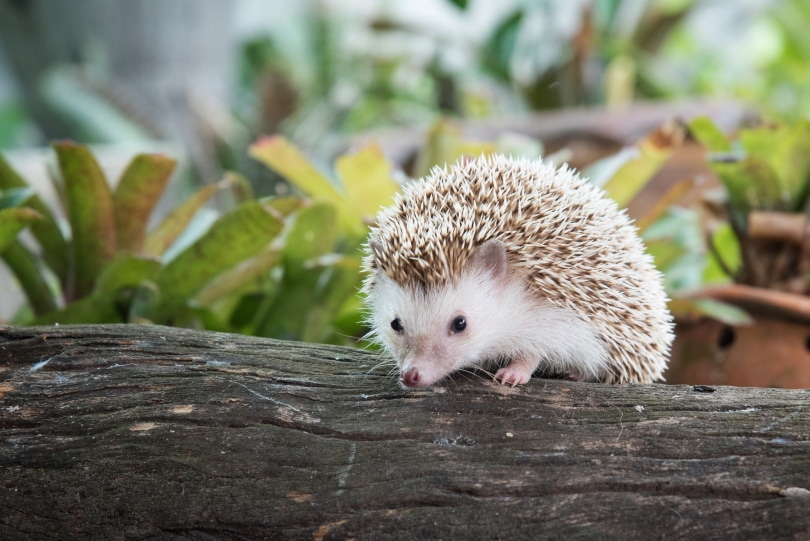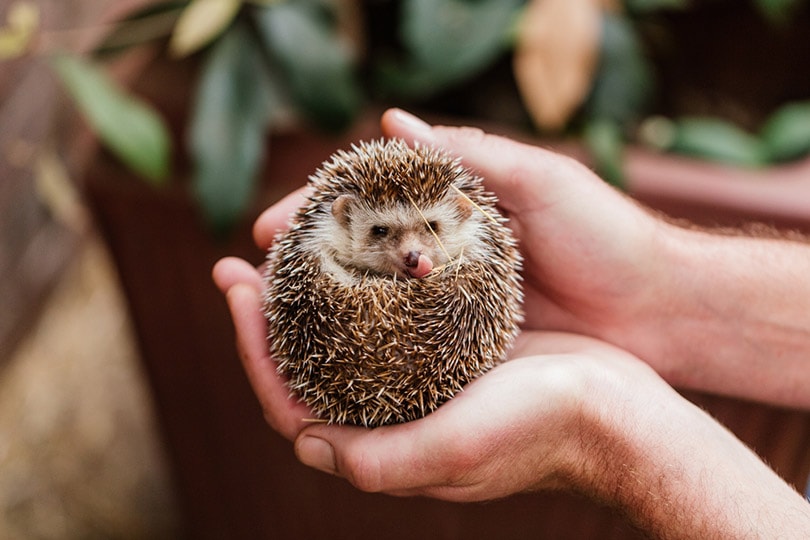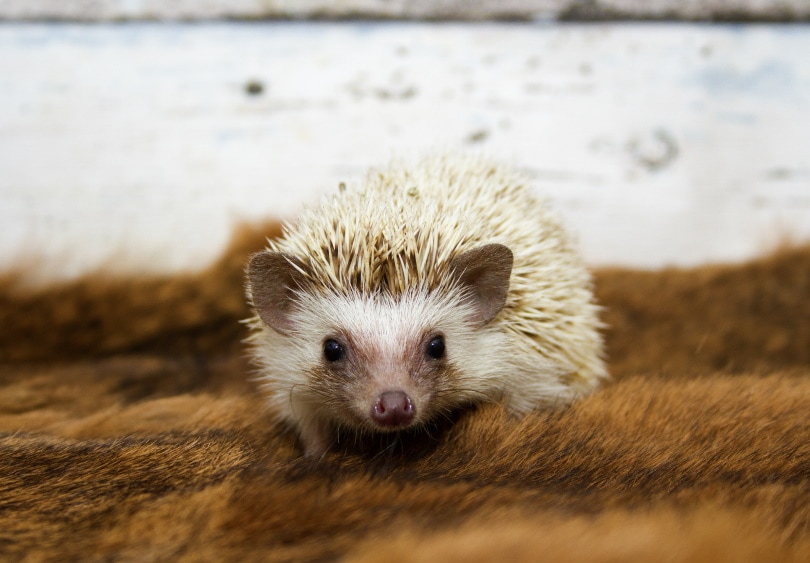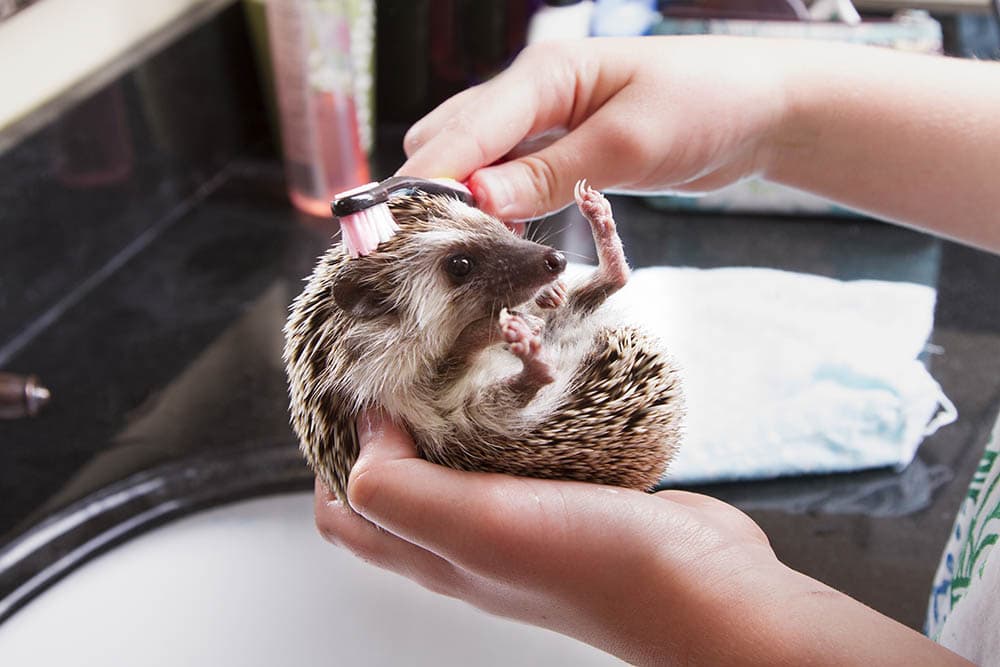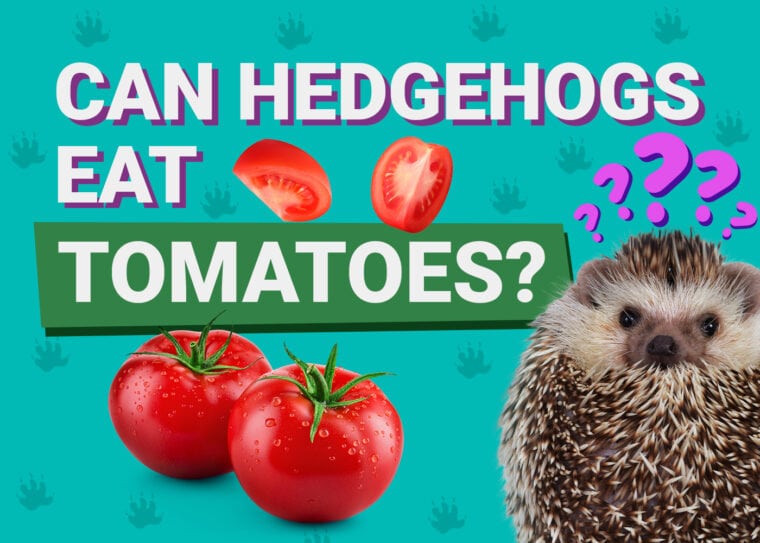
Hedgehogs are becoming popular exotic pets for many people. Why? Well, have you ever seen a hedgehog? Cuteness overload! They enjoy lots of activities that can be done inside or outside, like climbing, running, and swimming. Also, as pets go, they are low maintenance. But what do hedgehogs eat? Hedgehogs are omnivorous, meaning they will eat both plants and small animals. Wild hedgehogs will eat lizards, mushrooms, berries, and bird’s eggs. A domesticated hedgehog’s diet will mainly consist of pellets usually made with chicken meal, wheat, rice flour, vegetables, and fruit. You can also include insects like mealworms and crickets on the menu!
Hedgehog owners might want to supplement their pet’s diet with other things like fresh fruits and vegetables. While you are checking in your fridge for something that would be good for your hedgehog and your eyes fall on a small bag of tomatoes. Would those be good to feed your hedgehog? Yes, your hedgehog can safely eat tomatoes. However, they should only be given in moderation. If you want more details about hedgehogs and tomatoes, read on!
 Tomato Nutritional Information
Tomato Nutritional Information
Tomatoes are a nutritional fruit (although some consider them to be vegetables) that is packed with vitamins and minerals like vitamin C, vitamin K, potassium, and folate. Tomatoes also have a lot of lycopene, which is an antioxidant with many health benefits. All these vitamins and minerals are essential for a healthy body.
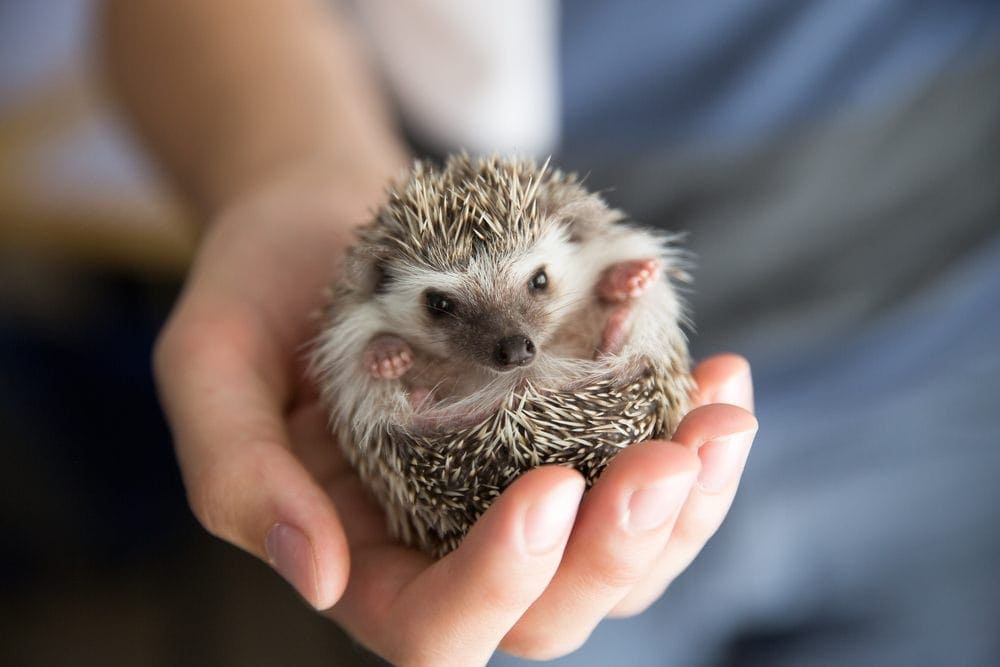
The Benefits of Tomatoes For Hedgehogs
Tomatoes are healthy for hedgehogs to consume in limited portions. The vitamin C found in tomatoes helps strengthen your hedgehog’s immune system. Tomatoes have fiber, which assists in your hedgehog’s overall digestion. Tomatoes can be a great additional treat to your hedgehog’s diet.
Drawbacks of Tomatoes For Hedgehogs
Even though tomatoes have nutritional benefits, those nutritional benefits can harm your hedgehogs. For example, tomatoes contain calcium; however, too much calcium can lead to kidney stones in your hedgehogs. Tomatoes also contain sugar. Sugar in moderation is beneficial because sugars provide energy. But too much sugar — even in fruit — can lead to obesity in many animals. Hedgehogs are small mammals and can gain weight quickly because overweight hedgehogs can have many health problems. Too much sugar can also lead to diarrhea. Another concern hedgehog owners need to be aware of is the acidic content in tomatoes. The acid in tomatoes can cause stomach issues for your hedgehog.
What About The Other Parts Of The Tomato?
People might wonder if the other parts of the tomato, like the leaves and stems, are okay to feed your hedgehog. Never give your hedgehog the leaves or the stems of the tomato. It can be toxic to hedgehogs and other animals. The leaves contain solanine, which, when consumed in large amounts, can result in severe gastrointestinal issues. Avoid giving your hedgehog the leaves or stems of the tomato plant. Seeds of the tomato are fine to give your hedgehog, but avoid giving them the green parts near the seeds as that part can cause health issues for your spikey pet.
Can Hedgehogs Eat Other Tomato-Based Foods?
If you are considering giving your hedgehog tomato-based foods like pasta sauce or ketchup, don’t! Foods like pasta cause and ketchup contain a high level of sugar, causing obesity. These foods also have spices, additives, and oils. All these additions are not healthy for your hedgehog. When feeding your hedgehog or any pet, foods in their natural state are often the best choice!

How Should I Feed My Hedgehog Tomatoes?
Now that you know the benefits and potentially harmful effects of tomatoes, it is important to understand how to give tomatoes to your hedgehog.
What Other Snacks Can I Give My Hedgehog?
In addition to their standard diet of pellets and certain insects, you can give your hedgehog some additional treats. Small amounts of fresh fruit can be given but in moderation. Small cut pieces of apple, berries, melon, or bananas are great choices! But because fruit contains sugar, small pieces once or twice a month are sufficient. Vegetables like green beans can also be a yummy monthly treat!
Since hedgehogs are omnivores, they can be given small amounts of cooked meat, like chicken. Scrambled eggs can be added to their menu on occasion. Even dog or cat food can be given to your hedgehog if it is high protein and low fat.
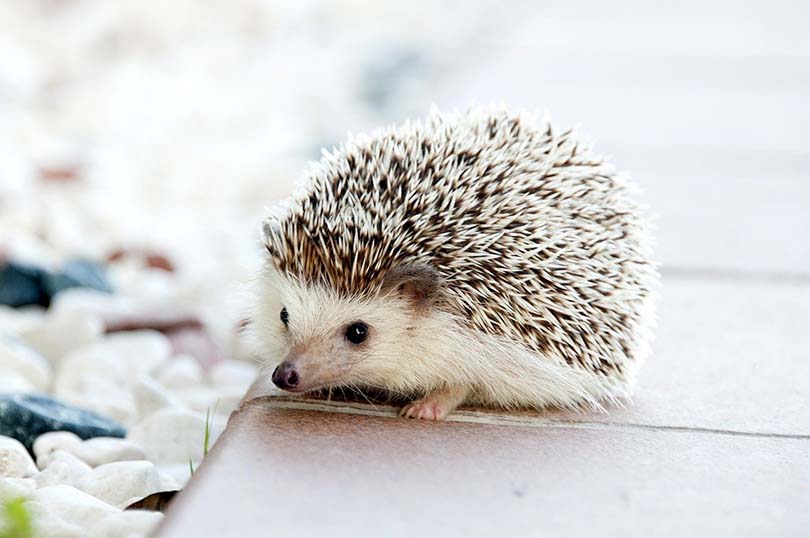
 Final Thoughts
Final Thoughts
While small amounts of tomato given bimonthly can be great for your hedgehog’s health, some people would rather not introduce tomatoes to their diet due to some potential negative effects. There are many vegetables and fruits that are healthy and safe snacks your hedgehog will love. Like with tomatoes, you should give those snacks in moderation to avoid weight gain or stomach issues.

 Tomato Nutritional Information
Tomato Nutritional Information